Australia accuses China of undermining trade agreement
- Published
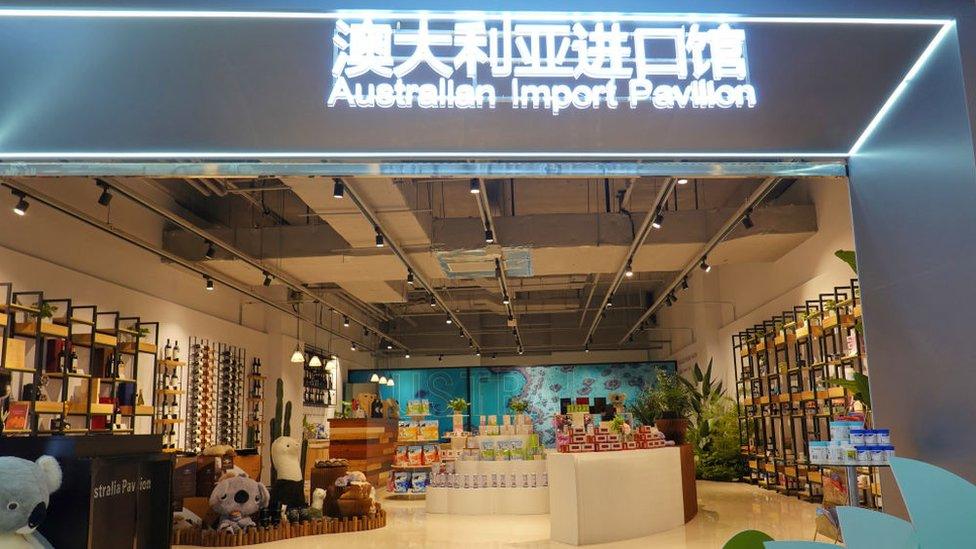
China this year has halted or blocked a range of Australian imports
Australia has accused China of undermining their free trade agreement over a series of actions by Beijing against Australian export goods.
In his strongest comments yet, Trade Minister Simon Birmingham said China had "targeted" a dozen Australian goods amid tensions between the countries.
China has imposed sanctions or halts on Australian goods such as grain, wine and beef this year.
This has caused alarm in Australia, as China is its biggest trading partner.
"We continue to raise issues of apparent potential, discriminatory actions targeted against Australia," Mr Birmingham said, adding Australia was "considering all dispute settlement options".
China buys more than a third of Australia's exports, and accounts for 27% of two-way trade.
Beijing has accused Australia of "unfriendly" and "hostile" attitudes towards China, amid a deteriorating political row.
Last week, Australia reacted angrily to a Chinese official's post on Twitter which included a graphic, fake image of an Australian soldier killing an Afghan child.
Australian Prime Minister Scott Morrison demanded an apology from Beijing, which was rejected.
What are the trade tensions?
The two nations signed a free trade agreement in 2015, which reduced tariffs and increased access to dozens of goods.

But since May, China has imposed successive sanctions on Australian goods including barley, meat and dairy products, timber, coal and cotton.
More recently, it placed tariffs of up to 200% on Australian wine - citing allegations of illegal trade practices, which are disputed by Australia.
On Wednesday, Mr Birmingham confirmed another Australian beef producer had also been blocked.
"The targeted nature of Chinese government measures on Australian goods raises concerns about China's adherence to the letter and spirit of its ChAFTA [free trade agreement] and WTO obligations," he told Australia's Senate.
He reiterated that repeat attempts for meetings with Chinese officials had been ignored - contrary to the trade deal's terms.
About 40% of Australia's export value to China comes from iron ore - a highly valued commodity not yet affected by the political tensions.
What's the wider background?
The trade issues began shortly after Australia echoed the US in criticising China's response to the coronavirus pandemic, and called for a global inquiry into its origins. Analysts say that escalated existing tensions.
In the past few years, Australia has widely discussed allegations of Chinese interference attempts in its domestic politics, business and education sectors.
China has rejected those suggestions as "paranoia" and "anti-China hysteria".
In August, one of its top diplomats said China had been offended by what it viewed as a lack of respect shown by Australia.
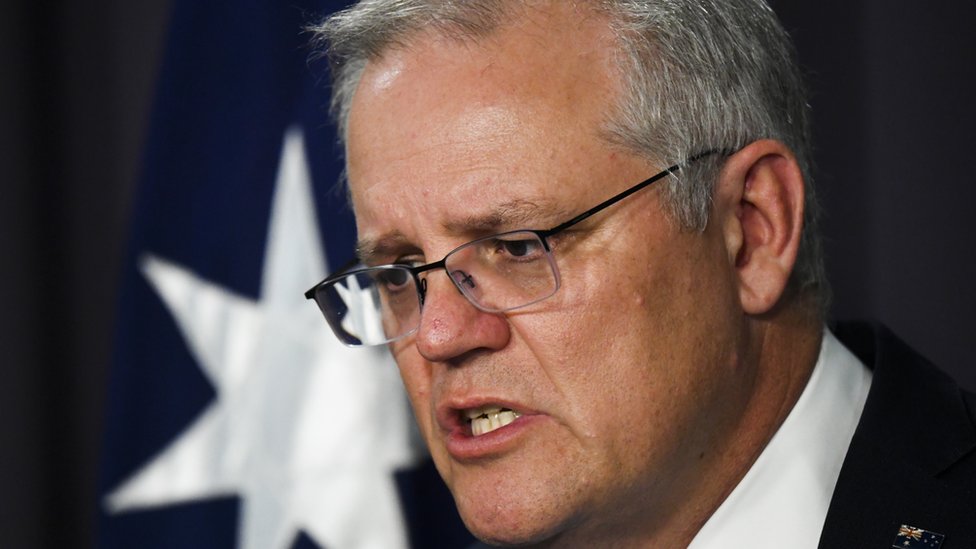
Scott Morrison has said Australia will not respond to economic coercion
Last month, China's embassy listed grievances it had with Australia - including "wanton interference in China's Xinjiang, Hong Kong and Taiwan affairs" and its stance on conflicts such as the South China Sea.
It has also criticised new powers which allow Australia's federal government to prevent its states from dealing with China's Belt and Road investment programme.
Mr Morrison has repeatedly said Australia will not compromise its sovereignty or national security in the face of criticism.
"We will always set our own laws and our own rules according to our national interests - not at the behest of any other nation, whether that's the US or China or anyone else," he said last month.

More on Australia and China:
Why the Australia-China row matters

Related topics
- Published17 June 2020
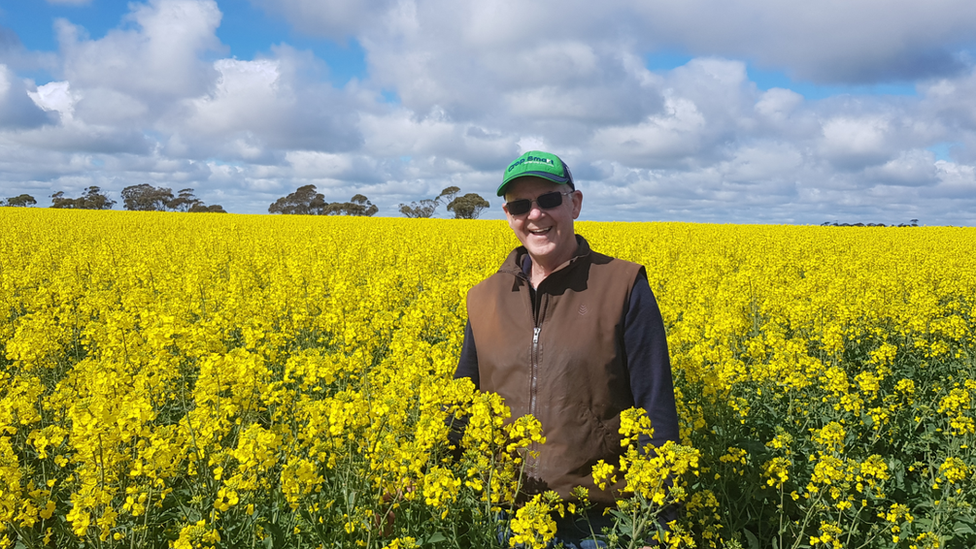
- Published3 December 2020
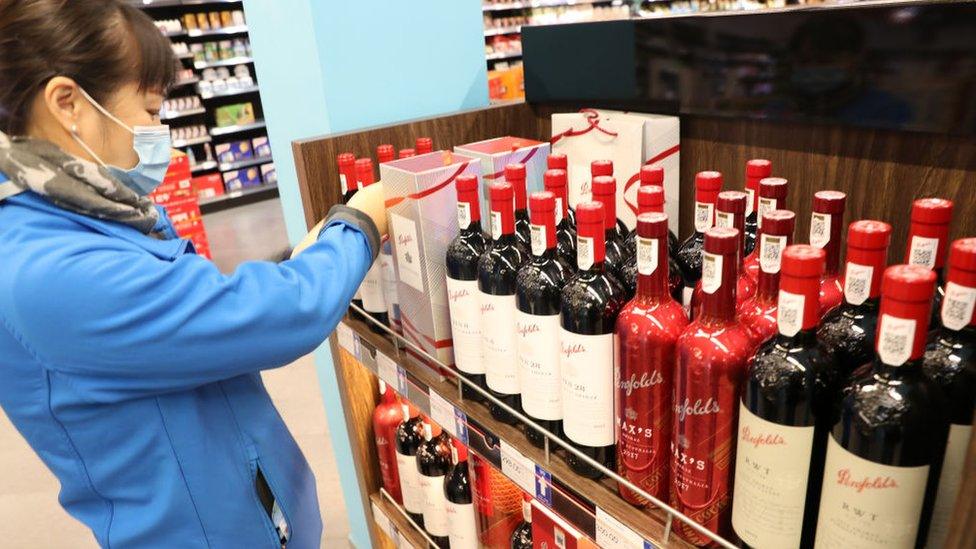
- Published11 October 2020
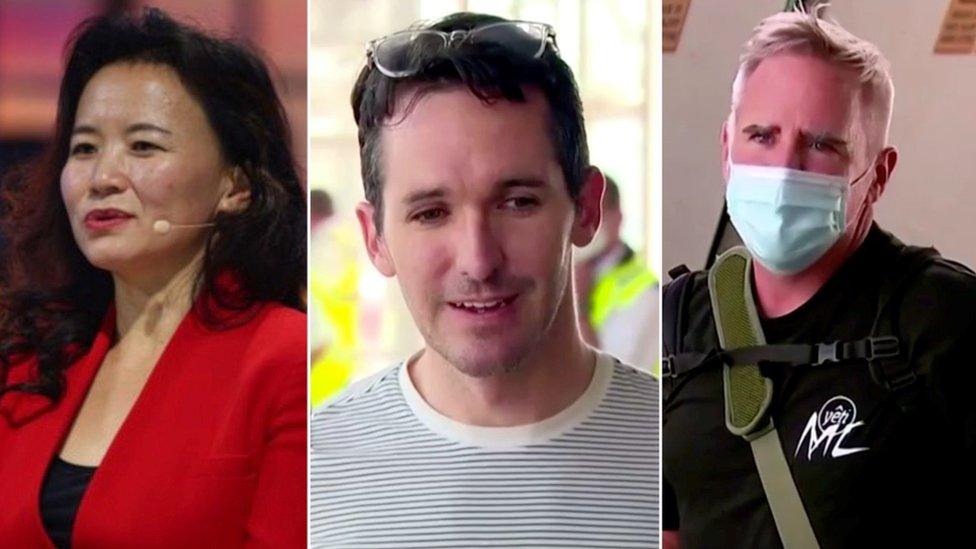
- Published8 September 2020
